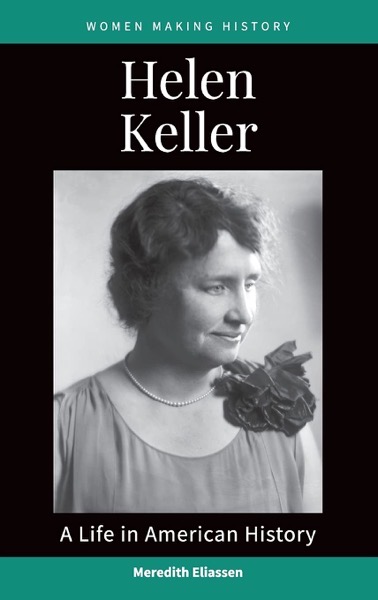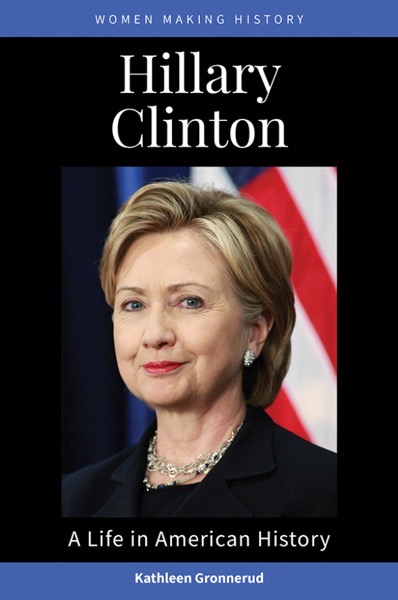On the heels of Book #3 I’m proud to present Book #4 of the Women Making History Series that I am co-editing with my colleague Peg Lamphier.
We want to congratulate author Meredith Eliassen for all her hard work on bringing the life of Helen Keller to modern readers in a very modern way. We can’t wait to see the rest of the books in our series come to publication.
The Keller book is the last of this first batch while the others are still (as planned) in the writing stage. They include Sally Ride, Eleanor Roosevelt, Ida B. Wells, and Delores Huerta.
Talk about a wonderful line up of women who made history. It was so, sooo, sooooo hard to find under 100 women worthy of this project – and then we had to find the authors to bring them to life. That second part was easier since we had such a wealth of women writer friends to turn to. Read on!
Helen Keller: A Life in American History explores Keller’s life, career as a lobbyist, and experiences as a deaf-blind woman within the context of her relationship with teacher-guardian-promoter Anne Sullivan Macy and overarching social history. The book tells the dual story of a pair struggling with respective disabilities and financial hardship and the oppressive societal expectations set for women during Keller’s lifetime. This narrative is perhaps the most comprehensive study of Helen Keller’s role in the development of support services specifically related to the deaf-blind, as delineated as different from the blind.
Readers will learn about Keller’s challenges and choices as well as how her public image often eclipsed her personal desires to live independently. Keller’s deaf-blindness and hard-earned but limited speech did not define her as a human being as she explored the world of ideas and wove those ideas into her writing, lobbying for funds for the American Federation for the Blind and working with disabled activists and supporters to bring about practical help during times of tremendous societal change.


![04 The Writers of A Star Is Born (1937) from “Female Creatives & A Star Is Born” [Video]](https://rosannewelch.com/wp-content/uploads/2021/09/rmw-women-creatives-star-is-born-usc-04.jpg)

![09 Why Italy? from Concord Days: Margaret Fuller in Italy [Video]](https://rosannewelch.com/wp-content/uploads/2021/09/rmw-concord-day-2021-fuller-rome-09.jpg)

![03 What Price Hollywood from “Female Creatives & A Star Is Born” with Dr. Rosanne Welch [Video]](https://rosannewelch.com/wp-content/uploads/2021/09/rmw-women-creatives-star-is-born-usc-03.jpg)
![08 Smart Women and Transcendentalism from Concord Days: Margaret Fuller in Italy [Video]](https://rosannewelch.com/wp-content/uploads/2021/09/rmw-concord-day-2021-fuller-rome-08.jpg)

![02 Women Writers Matter from “Female Creatives & A Star Is Born” with Dr. Rosanne Welch [Video]](https://rosannewelch.com/wp-content/uploads/2021/09/rmw-women-creatives-star-is-born-usc-02.jpg)
![07 Emerson and “The Dial” from Concord Days: Margaret Fuller in Italy [Video]](https://rosannewelch.com/wp-content/uploads/2021/09/rmw-concord-day-2021-fuller-rome-07.jpg)
![01 Introduction from “Female Creatives & A Star Is Born” with Dr. Rosanne Welch [Video] [CC]](https://rosannewelch.com/wp-content/uploads/2021/03/rmw-women-creatives-star-is-born-usc.jpg)
